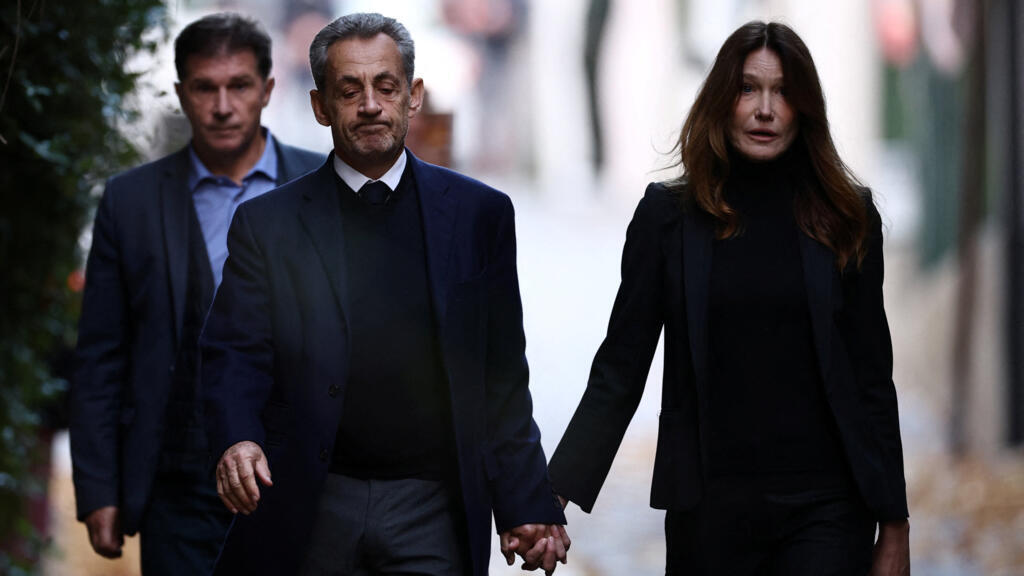Paris Court of Appeal Reviews Nicolas Sarkozy's Request for Release from Prison
The Paris court of appeal considers Nicolas Sarkozy's appeal for release from prison after his conviction in the Libyan financing scandal, with the decision pending amid cautious reactions.
- • Nicolas Sarkozy's appeal for release is reviewed after 20 days in prison following a five-year sentence for collusion in the Libyan scandal.
- • His lawyers filed the appeal immediately after detention; Sarkozy is expected to appear via videoconference.
- • The court's decision focuses on the necessity of continued imprisonment to protect evidence or prevent flight or tampering.
- • Supporters maintain a cautious stance, emphasizing the uncertainty of release and avoiding speculation on the verdict.
Key details
On November 10, 2025, the Paris court of appeal examined former French President Nicolas Sarkozy's request for release after twenty days of imprisonment. Sarkozy, sentenced to five years in prison for collusion in the Libyan financing scandal tied to his 2007 presidential campaign, has been incarcerated since October 21. His conviction on September 25 marked an unprecedented event in French history — the imprisonment of a former president. The legal scrutiny hinges on whether Sarkozy's continued detention is necessary to protect evidence, prevent tampering, or avoid flight or recidivism. If granted release, he may be subject to judicial supervision or house arrest with an electronic bracelet.
Sarkozy's lawyers promptly filed the appeal after his detention, and he was expected to appear at the hearing via video conference. Despite widespread public and political debate, his legal team has remained reserved, refraining from comment ahead of the decision. Meanwhile, Sarkozy remains isolated with heightened prison security due to perceived threats.
Supporters of Sarkozy approach the situation cautiously. As noted by political commentator Guillaume Tabard, the potential release should not be viewed as a favor but rather a relief from imprisonment. They are preparing for all outcomes, wary of assuming release will happen. Tabard highlighted that with previous acquittals on major charges, Sarkozy's final sentence was for association of malfaiteurs, and the outcome of the appeal remains uncertain with reluctance to speculate or influence the court.
Looking ahead, a new trial related to the Libyan case is scheduled for March 2026, underscoring ongoing legal challenges for Sarkozy. The court's ruling on November 10 could decide whether Sarkozy remains in prison or is released under judicial conditions, making this a pivotal moment in the post-presidential legal saga.
This article was translated and synthesized from French sources, providing English-speaking readers with local perspectives.
Source articles (2)
Source comparison
Sentence details
Sources disagree on the specific nature of Sarkozy's conviction.
france24.com
"Sarkozy is appealing a five-year prison sentence for collusion."
lefigaro.fr
"Sarkozy was sentenced to five years for 'association of malfaiteurs.'"
Why this matters: Source 137072 states Sarkozy was convicted for collusion, while Source 137100 refers to the conviction as 'association of malfaiteurs.' This discrepancy is significant as it highlights different interpretations of the legal basis for Sarkozy's imprisonment, which could affect public understanding of the severity and implications of his conviction.
Latest news
France Returns the Djidji Ayôkwé Talking Drum to Côte d'Ivoire After Over a Century
Record 37 Days of Rain Triggers Ongoing Severe Flooding in Western France
Political Divisions and Social Tensions Intensify Following Quentin Deranque’s Death in Lyon
French Economy Minister Calls for Full Insurance Industry Mobilization Amid Devastating Storm Floods
France Boosts Social and Solidarity Economy with New Tools and Potential Tax Reforms in 2026
Saint-Nazaire Mayor Condemns Vandalism of Two Political Offices as Attack on Democracy
The top news stories in France
Delivered straight to your inbox each morning.


